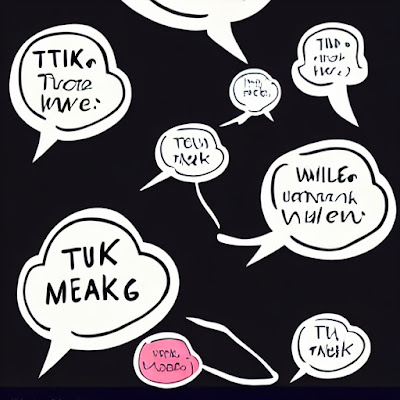These are simple but important steps to excel in any programming language
Start with the Basics:
To become an expert programmer, you need to start with the basics. Think of programming languages like building blocks. Just as you start with the foundation when building a house, you need to understand the basics of programming.
Example: Learn about variables, data types, and how to write simple programs. Start with a beginner-friendly language like Python, which is easy to read and widely used.
Practice Regularly:
Like any skill, programming requires practice. The more you practice, the better you'll get. Set aside time each day to code, even if it's just for 15-30 minutes.
Example: Work on small projects or coding challenges regularly. Websites like Codecademy, LeetCode, or HackerRank offer plenty of exercises to practice coding.
Learn from Others:
Don't be afraid to learn from others. Join coding communities, attend meetups, and participate in online forums. Learning from experienced programmers can help you improve faster.
Example: Join a local coding group or an online community like Stack Overflow or GitHub. Ask questions, share your code, and learn from others' experiences.
Build Projects:
One of the best ways to learn programming is by building projects. Think of something you want to create and start working on it. Building projects helps you apply what you've learned and gives you valuable experience.
Example: Create a simple website, build a mobile app, or develop a game. Start with something small and gradually increase the complexity as you become more comfortable with coding.
Read Code:
Reading code written by others can teach you new techniques and best practices. Look at open-source projects on GitHub or read through coding tutorials and documentation.
Example: Find a project on GitHub that interests you and explore the codebase. Pay attention to how the code is structured, how functions are written, and how different components interact with each other.
Understand Algorithms and Data Structures:
Algorithms and data structures are fundamental concepts in programming. Understanding them will help you write more efficient and optimized code.
Example: Study common algorithms like sorting and searching algorithms. Learn about data structures such as arrays, linked lists, stacks, and queues. Practice implementing these algorithms and data structures in your code.
Experiment and Innovate:
Don't be afraid to experiment with new ideas and technologies. Innovation often comes from trying out new things and pushing the boundaries of what's possible.
Example: Try learning a new programming language or exploring a new framework. Experiment with different programming paradigms like object-oriented programming, functional programming, or procedural programming.
Refactor and Optimize:
Refactoring is the process of restructuring existing code without changing its external behavior. It's essential for improving the quality and maintainability of your code. Optimization involves making your code run faster and use fewer resources.
Example: Review your code regularly and look for ways to make it cleaner and more efficient. Use tools like linters and profilers to identify areas for improvement. Experiment with different algorithms and data structures to optimize your code.
Stay Curious and Keep Learning:
Technology is constantly evolving, so it's crucial to stay curious and keep learning. Keep up with the latest trends and advancements in the field of programming.
Example: Read programming blogs, watch online tutorials, and attend conferences and workshops. Take online courses to learn new skills or deepen your understanding of existing ones.
Learn to Debug:
Debugging is an essential skill for programmers. When you encounter errors in your code, it's important to be able to identify and fix them quickly.
Example: Learn how to use debugging tools like breakpoints, watchpoints, and stack traces. Practice troubleshooting common types of bugs, such as syntax errors, logic errors, and runtime errors.
Build a Portfolio:
As you gain experience and complete projects, build a portfolio to showcase your work to potential employers or clients.
Example: Create a personal website or GitHub repository where you can display your projects and share your code. Include descriptions of each project, along with links to live demos or source code.
By following these steps and consistently practicing your programming skills, you can become an expert programmer over time. Becoming an expert takes patience, dedication, and a willingness to learn from both successes and failures. Keep coding and never stop exploring new possibilities in the world of programming!














